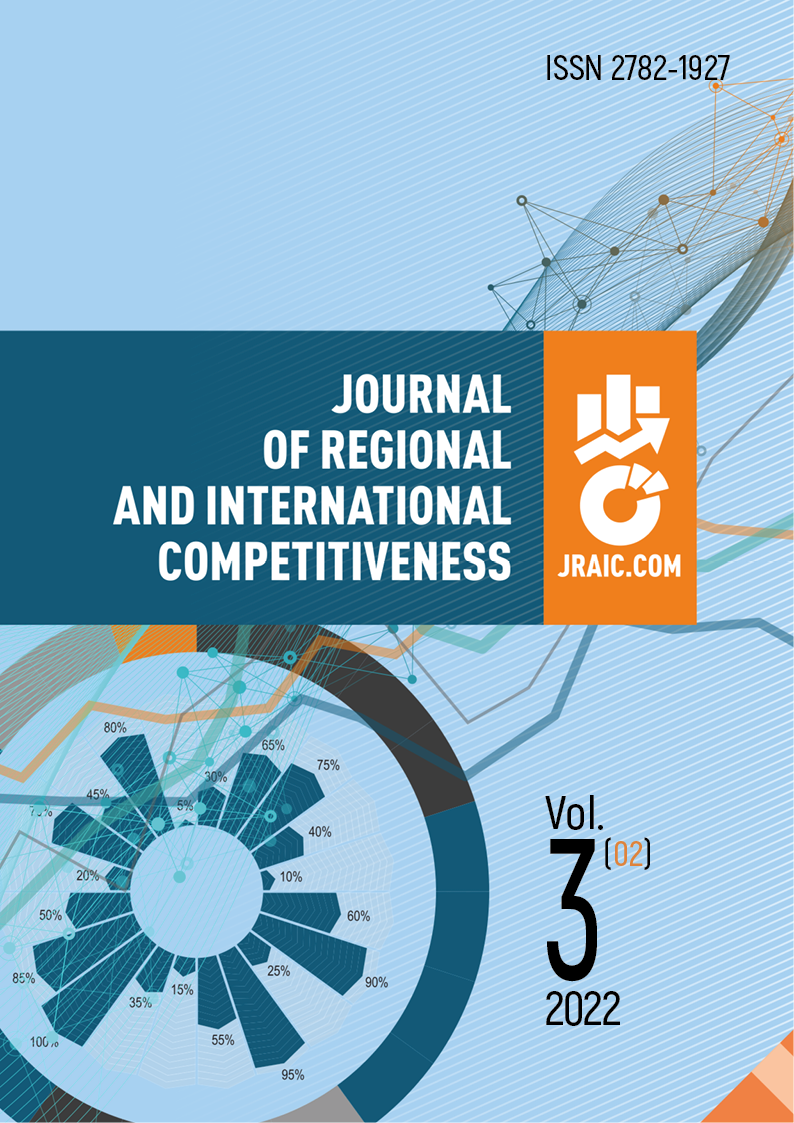Ivanovo, Russian Federation
Ivanovo, Ivanovo, Russian Federation
The paper considers the trends of population reproduction in Russia, highlighting its negative phenomena, processes, trends and imbalances. Also the paper dwells on demographic risks, their challenges and imbalances. We try to analyze the dynamics of population, population composition by sex and age, the ratio of urban and rural population, birth and death rates and life expectancy by using data on four regions of the Central Federal District: the Vladimir, Ivanovo, Kostroma and Yaroslavl regions. Also we take into account the factors influencing the dynamics of key demographic indicators and the impact of the coronavirus pandemic on demographic characteristics.
DEMOGRAPHIC RISKS, THREATS, PROBLEMS, IMBALANCES, POPULATION GREYING, POPULATION SIZE, DEPOPULATION, CONTRACTED REPRODUCTION, POPULATION COMPOSITION, URBAN-RURAL POPULATION RATIO, INFANT NATALITY, POPULATION MORTALITY, LIFE EXPECTANCY, VLADIMIR REGION, IVANOVO REGION, KOSTROMA REGION, YAROSLAVL REGION
1. Arkhangelsky, V. N., Elizarov, V. V., & Dzhanaeva, N. G. (2021). Children or Material Prosperity: Determination of Choice. Uroven’ zhizni naseleniyar egionov Rossii, 17(1), 102-120. Retrieved from https://doi. org/10.19181/lsprr.2021.17.1.8 (in Russian).
2. Batrakova, L. G. (2021). Social and economic inequality of Russian regions. Teoreticheskaya Ekonomika, 82(10), 125-128. Retrieved from http://theoreticaleconomy.ru/index.php/tor/issue/view/11 (in Russian).
3. Berendeeva, A. B., & Berendeeva, O. S. (2022). Competition between the regions of the center of Russia for migration flows of the population: assessment and consequences. Journal of Regional and International Competitiveness, (1), 42-54. Retrieved from http://jraic.com/index.php/tor
4. Berendeeva, A. B., & Zosimova, L. A. (2018). Fundamentals of demography. Ivanovo: Ivanovo branch of the Private Educational Institution of Higher Professional Education “Institute of Management”. «Informatika» (in Russian).
5. Gayazov, A. S., Akhmetova, G. F., Utyasheva, I. B., & Shamsutdinova, N. K. (2020). Socio-territorial features of natural and migration movement of the region’s population in the Republic of Bashkortostan. Sociologicheskie issledovaniya, (12), 75-86 (in Russian).
6. Gordeev, V. A. ( 2022). The study of social reproduction - the fundamental basis for the development of theoretical economics. Teoreticheskaya Ekonomika, 85(1), 130-135. Retrieved from http://theoreticaleconomy.ru/index.php/tor/issue/view/14 (in Russian).
7. Dobrohleb, V. G., & Barsukov, V. N. (2020). Population Greying in Russia and China: Features and Socio-Economic Risks. Uroven’ zhizni naseleniya regionov Rossii, 16(4), 36-48 (in Russian).
8. Elizarova, A. A., & Berendeeva, O. S. (2018). Risks of socio-economic development of single-industry towns in Russia. Mnogourovnevoe obshchestvennoe vosproizvodstvo: voprosy teorii I praktiki: sb. nauch. tr. Ivanovo: Ivanovskii gosudarstvennyi universitet, (15), 28-36 (in Russian).
9. Kobleva, Z. Kh. (2022). The phenomenon of deliberate childlessness in the conditions of transformation of family-marital relations. Uroven’ zhizni naseleniya regionov Rossii, 18(1), 72-78 (in Russian).
10. Kulkova, I. A. (2021). The impact of raising the retirement age on women’s reproductive intentions. Sociologicheskieissledovaniya, (5), 94-101 (in Russian).
11. Kuchumov, A. V., & Pecheritsa, E. V. (2020). Threats and risks of demographic security in the Russian Federation. Tekhniko-tekhnologicheskie problemy servisa, (4), 116-122 (in Russian).
12. Sigareva, E. P., Sivoplyasova, S. Yu., & Pletneva, Yu. E. (2020). Risks of demographic development under pandemic conditions. Nauka. Kul’tura. Obshchestvo, 26(4), 98-116 (in Russian).
13. Sizova, O. V., & Berendeeva, A. B. (2021). Demography of Russian Regions: Modelling Methods in the Analysis of Demographic Processes. Ivanovo: Ivanovo State Chemical Engineering University (in Russian).
14. Sinelnikov, A. B. (2021). Demographic transition and family and demographic policy. Sociologicheskie issledovaniya, (10), 83-93 (in Russian).
15. Sosnin, D. P., & Stolbova, E. A. (2018). Territorial organization of local self-government facing the challenge of demographic contraction (on the example of Kursk region). Regional’naya vlast’, mestnoe samoupravlenie I grazhdanskoe obshchestvo: mekhanizmy vzaimodejstviya: sb. nauch. trudov II Vseros. nauch.prakt. konf. (pp. 88-92). Saratov: Povolzhskii in-t upravleniia im. P.A. Stolypina - filial FGBOU VPO Rossiiskaia akademiia narodnogo khoziaistva i gosudarstvennoi sluzhby pri Prezidente Rossiiskoi Federatsii (in Russian).
16. Tebekin, A. V. (2021). Analysis of the problems of the development of settlements in Russian Federation. Teoreticheskaya ekonomika, 78(6), 82-93. Retrieved from http://theoreticaleconomy.ru/index.php/tor/ issue/view/7 (in Russian)
17. Demographic Yearbook of Russia: Stat. coll. / Rosstat. (2021). M. Retrieved from https://rosstat.gov. ru/storage/mediabank/dem21.pdf (accessed 26.04.2022) (in Russian).
18. Source: Regions of Russia. Regions of Russia. Socio-economic indicators. 2021: stat. coll. / Rosstat (2021). M. (in Russian).
19. Federal State Statistics Service. (2022). Results of a sample survey of the population’s reproductive plans in 2017. Retrieved from https://rosstat.gov.ru/itog_inspect (accessed 26.04.2022).
20. Federal State Statistics Service. (2022). Socio-economic Situation of Russia, January-March 2022. Retrieved from https://rosstat.gov.ru/storage/mediabank/osn-03-2022.pdf (accessed 26.04.2022).




















